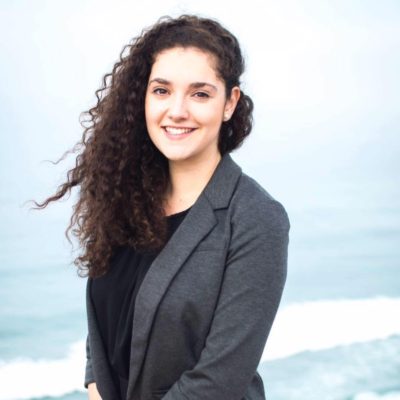
I never had a Bat Mitzvah ceremony. Literally every single one of my family members is Jewish, I went to Jewish day school, I fast on Yom Kippur and yet… no Bat Mitzvah. The one I had on Birthright at the Western Wall, while incredibly meaningful, doesn’t count. When people ask me why I never went through this rite of passage that seemingly every other Jewish preteen has, I usually play it off with some self-deprecating humor about not having enough friends in middle school to invite to a Bat Mitzvah (probably true). However the real reason is that nobody else in my family had one. At the age of twelve, when the idea was brought up, I wasn’t interested; not only because I thought I had more important things to do in my seventh grade haze of self importance, but also because it wasn’t something any of my family members went through. Thus, my family did not push for me to have one, and I don’t blame them. It is very difficult to enforce traditions and values that you weren’t raised with. But my family didn’t grow up without these values by choice. My father is one of the most spiritual people I’ve ever met; he reads Torah and has spoken to me about Jewish principles from a young age. Despite his greatest efforts and attempts, his inability to practice Judaism or attend synagogue as a youth affected the way he practices Judaism today, and thus how I ended up perceiving what it meant to be Jewish.
My entire family was born and raised in the former Soviet Union in what is now Ukraine. They were told growing up that being Jewish was something that was better off hidden and concealed, as there was simply no way to safely observe Jewish customs without getting questioned by the KGB and accused of disloyalty to the government. Furthermore, everyone: neighbors, teachers, the government, was pitted against them and determined to stop them from succeeding purely because of their Jewish heritage. My grandparents earned lower wages and were mistreated at their jobs. My mom was denied acceptance to medical school despite a stellar academic record, and my entire family had numerous experiences with violent aggression and assault, all because of a passport identifying them as Jews. In the Soviet Union, what it meant to be Jewish was hardly spiritual, and did not represent any of the beautiful aspects of Jewish wisdom. Judaism was perverted and turned into a method for shame and oppression, and as hard as my family tried to redefine it for themselves, it was difficult to break away from years of anti-Semitic propaganda that were instilled in them as fact.
It’s hard for me to not be bitter when I hear about my American friends whose families have attended synagogues freely in the same regions for years, and had opportunities to explore Jewish teachings and messages without fear. However, there is something I have to thank the Soviet Union for. What I took away from my family’s narrative of suffering, was that the Jews have been through enough. Through centuries of prejudice and bigotry, my people have endured and I want my parents to be the last generation of those who feared for their safety simply because they were Jews. And what other country demonstrates those values more than Israel?
This summer I went on Birthright and stood on top of Mount Scopus in Jerusalem with tears in my eyes as I recounted my Grandpa telling me of his family saving up what little extra money they had to give to secret Jewish organizations who used it to help build Israel. I realized not only my privilege in being able to do and see what my Russian ancestors never could, but how much of a stronger Zionist and better advocate for the State of Israel I am due to understanding how much my people really have to lose.
My ancestors prayed for years for a safe haven from pogroms and systematic oppression and now that I am lucky enough to grow up with the State of Israel in existence as a refuge against anti-Semitism, I will fight for its right to continue to exist in peace and safety. Although my family wasn’t able to practice Judaism freely, the existence of Israel and ensuring its peace and security, which I plan on continuing to work towards, guarantees that the Jewish people will not be oppressed again.
Although my experience is unique to me, Jews from different backgrounds all have different stories and experiences of persecution and oppression; from European Jews whose families were murdered in the Holocaust, to Sephardic Jews from the Middle East who were kicked out of their homes and whose possessions were stolen in the 1940s. We can all unite in this shared experience and work towards the protection of Israel because it is the assurance and symbol of the end of our oppression. That is what makes me a strong Zionist. No matter where your family came from, you, as a young Jewish college student, should be a strong Zionist too.











